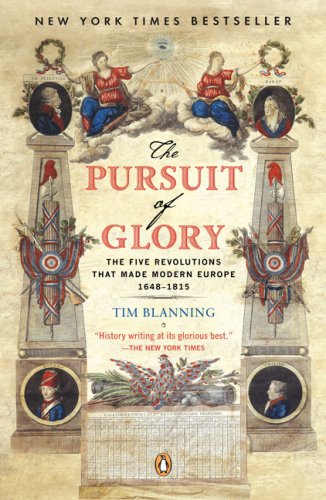“ספר ארוך, כבד, מפורט, ומעולה. הספר מספר את סיפורה של אירופה בתקופה שבין 1648 ("אביב העמים") ל-1815 (הניצחון האירופי על נפוליון). זה איננו ספר על היסטוריה פוליטית דווקא: הוא עוסק בתחבורה, בחקלאות, בהתפתחות התעשייה, במעמד הכנסייה, בבניית המבנים ההיסטוריים - אוצר בלום של ידע.”







